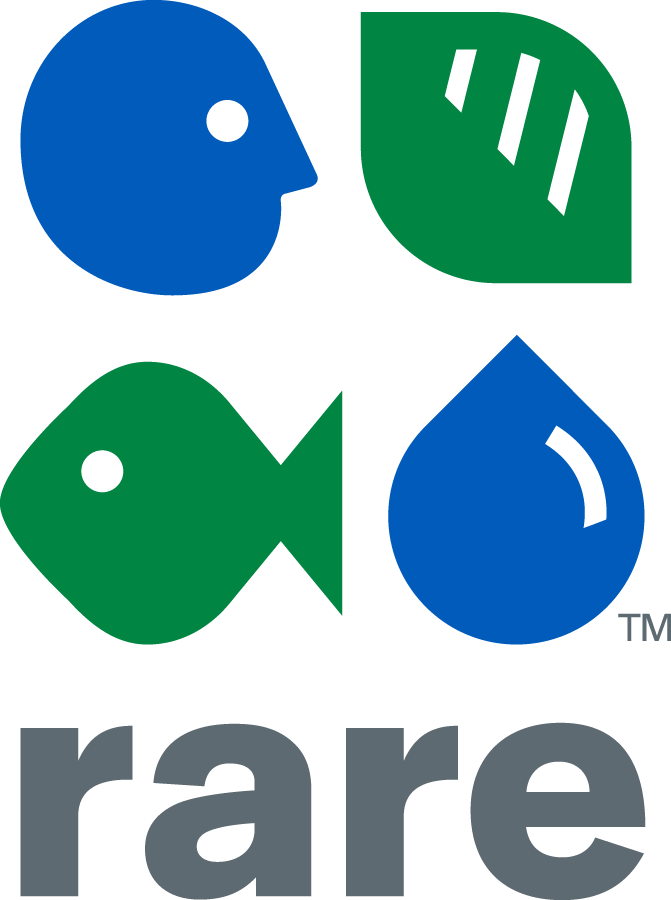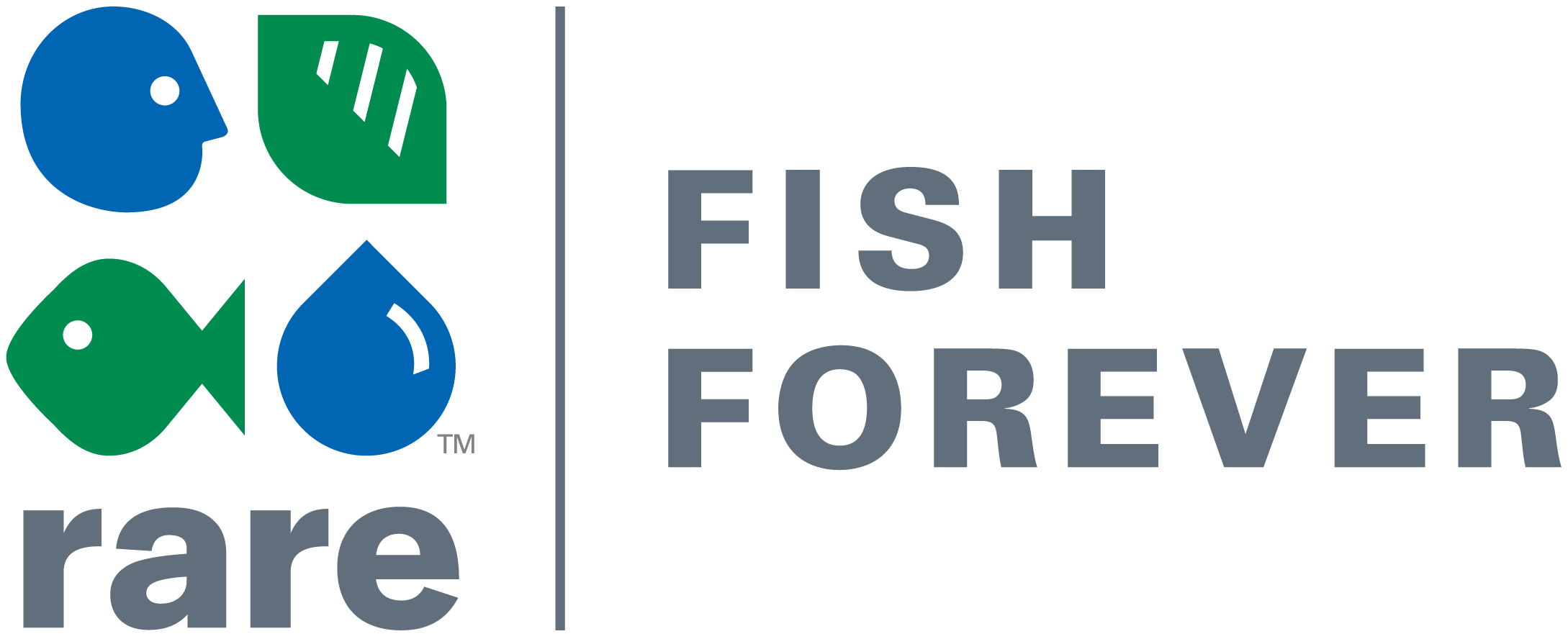A Day-in-the Life:
Two Indonesian Women Manage Fish, Finances and Their Futures
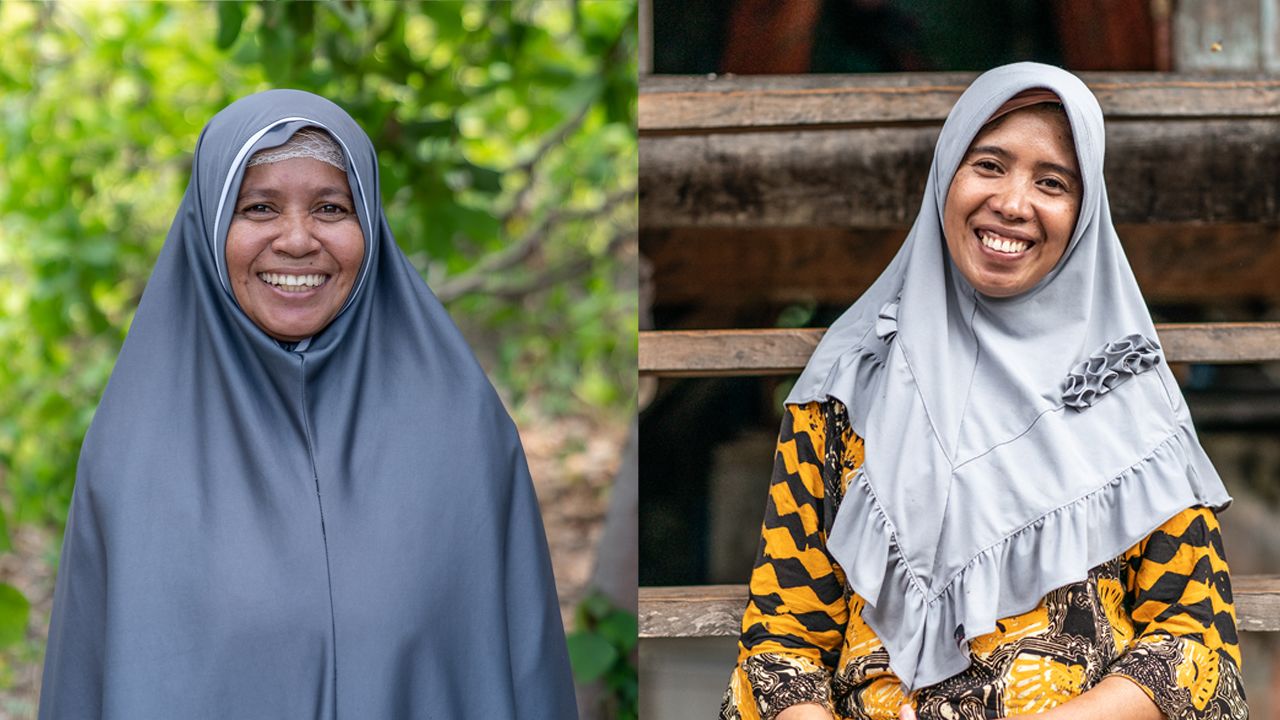
Nurlini and Rosmiati are coastal fish sellers and small-business owners in Indonesia’s Southeast Sulawesi province. Separated by nearly 70 miles of western South Pacific Ocean, these two women have never met—yet they live parallel lives.
Nurlini is a 32-year old octopus trader, businesswoman, and mother from Siompu District in South Buton Island. Rosmiati is a 35-year old fish seller, entrepreneur, and mother from Liya village in Wakatobi National Park’s Wangi-Wangi Island. Both are married to fishers and work long (and generally undervalued) hours managing their businesses and households. And both, concerned about changes they are seeing in the fish they rely on for food and income, are the first women in their community to use a digital catch recording app called OurFish to understand their fish and finances better.
This photo essay is a snapshot of two women’s daily lives and the interconnected challenges they face as women laboring to safeguard the well-being of their families, businesses, and communities—while faced with the global uncertainty of the future of fish.
Women in Indonesia provide critical but unrecognized contributions to the country’s coastal fisheries economy. Like most women from small-scale fishing households, Nurlini works multiple jobs from sunup to sundown: running an octopus business, taking care of six kids (three live with her), delivering petrol for her mother’s business, and managing her household’s finances and daily tasks.
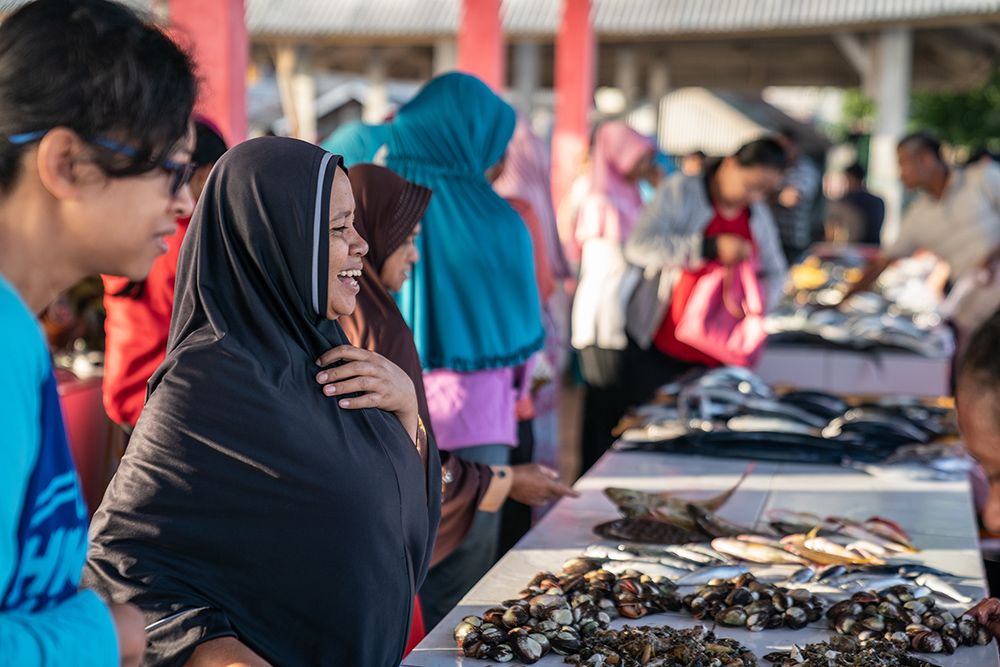
Traditionally, the men fish while the women buy, sell, or process the catch and manage their households. Rosmiati sells her husband’s fish catch to neighboring villages. To make ends meet, she also sells homemade bread, pisang ijo dessert, and sarongs from home and clothes she bought in Makassar, the provincial capital, from a rented stall at the central market. Having multiple incomes helps her family hedge against the uncertainty of fishing.
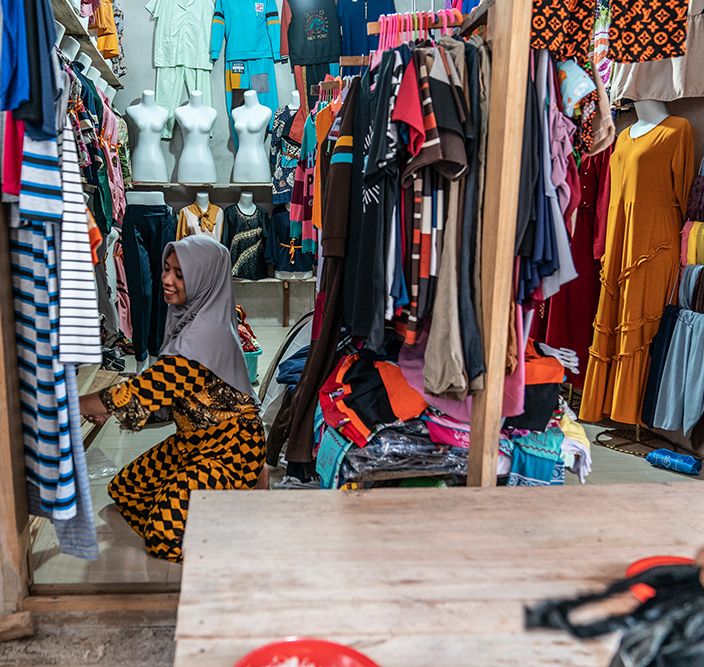
Nurlini rises from her bed on the bamboo floor of a modest nipa hut at 4 a.m. to prepare her household and business for the day. By 8:00 a.m., she already has her first buyer; by 4:00 p.m., she has already bought 200kg (~$14) of octopus from multiple buyers and sold yesterday’s octopus shipment to a porter at the ferry; and by 8:00 p.m., she buys her last octopus and starts calculating the day’s finances. Her average daily income is 200,000-500,000 rupiah/day ($14-$35). “This is enough for our family because our expenses are low, and school is free.”
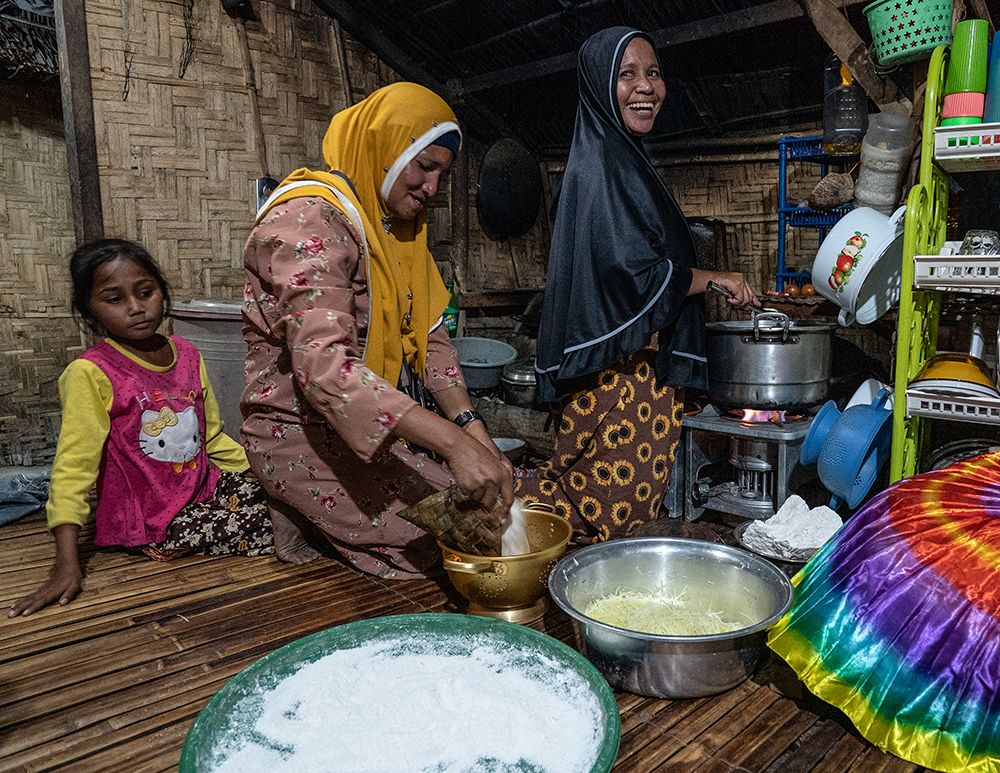
Rosmiati’s family lives in a traditional Sulawesi house with a large living room and no furniture. “Every day, I wake at dawn, cooking, washing the dishes, boiling water to make coffee for my husband, doing laundry, and then getting ready to go to the market after 7 or 8 a.m. when my husband returns from fishing.” As a traditional Butonese weaver, she weaves only in her spare time, or when the market is closed. She waits for buyers at the market until late afternoon.
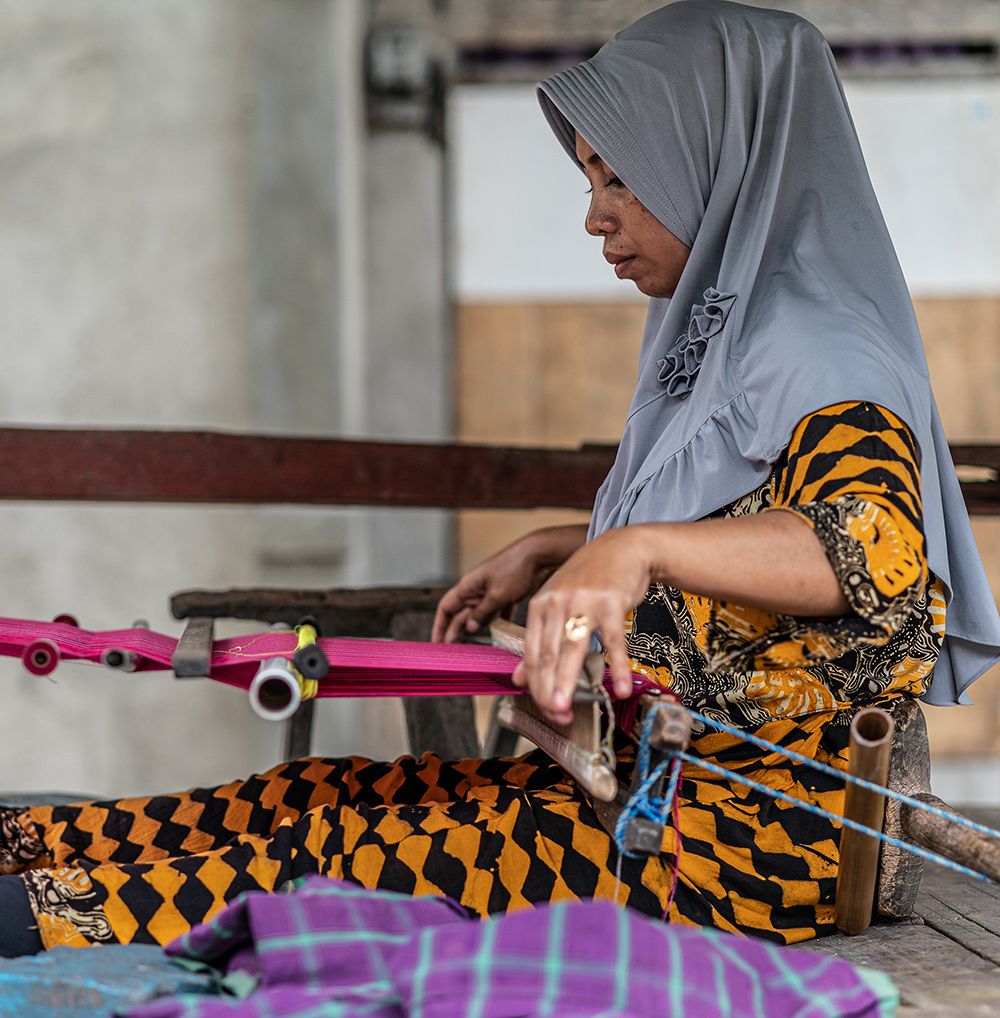
“Gurita! Gurita!” (Octopus! Octopus!) the neighborhood children shout, alerting Nurlini that another fisher has arrived to sell her the octopus he has caught from the reef-rich coastal waters. For a businesswoman like Nurlini, understanding her product is necessary for her small business to thrive. But very little data about octopus landings by Indonesia’s small-scale fishers exists, and over time, Nurlini has noticed change. “Back then, octopuses were cheap but abundant, with few fishers fishing them. Now, octopuses are expensive but limited, and many fishers compete to catch less.” These challenges make the future of her livelihood and business tenuous.
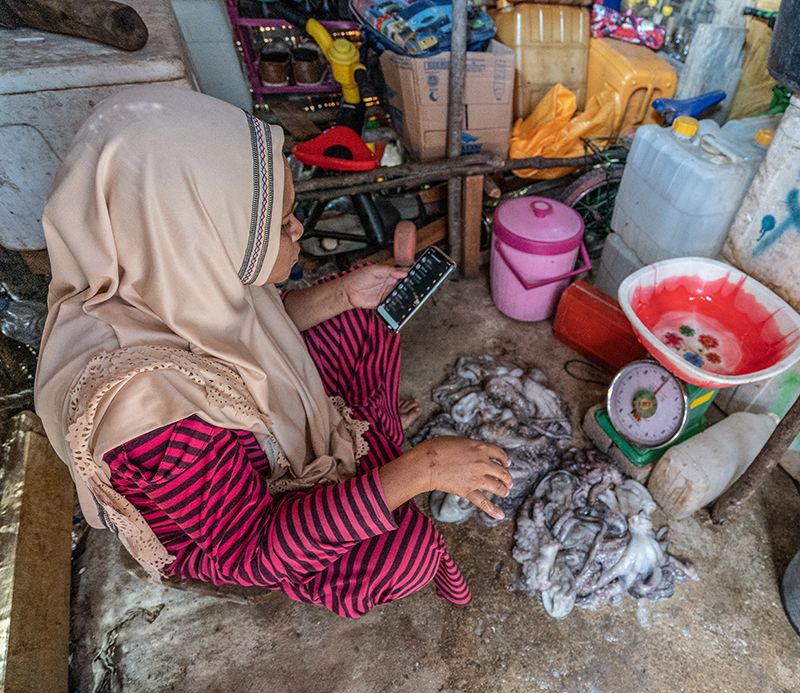
“Selling fish depends on how much fish we have. Sometimes we sell a lot. When there isn’t a lot of fish, we just sell them at home,” Rosmiati explains. “In 2009, there used be a lot of catches—20 buckets in one boat. But these days, only 4-5 buckets per boat,” her husband adds. Rosmiati arranges the catch on a shallow tin bowl, combining different species of small fish in several piles to be sold for 10,000 rupiah per pile (<$1). More prized species are set aside – a pufferfish sells for 50,000 rupiah (~$3.50); a large squid fetches 150,000 rupiah (~$11.00). Two men arrive in a motorbike to pick up the squid; Rosmiati’s daughter throws a tantrum, as she wanted to eat the squid.
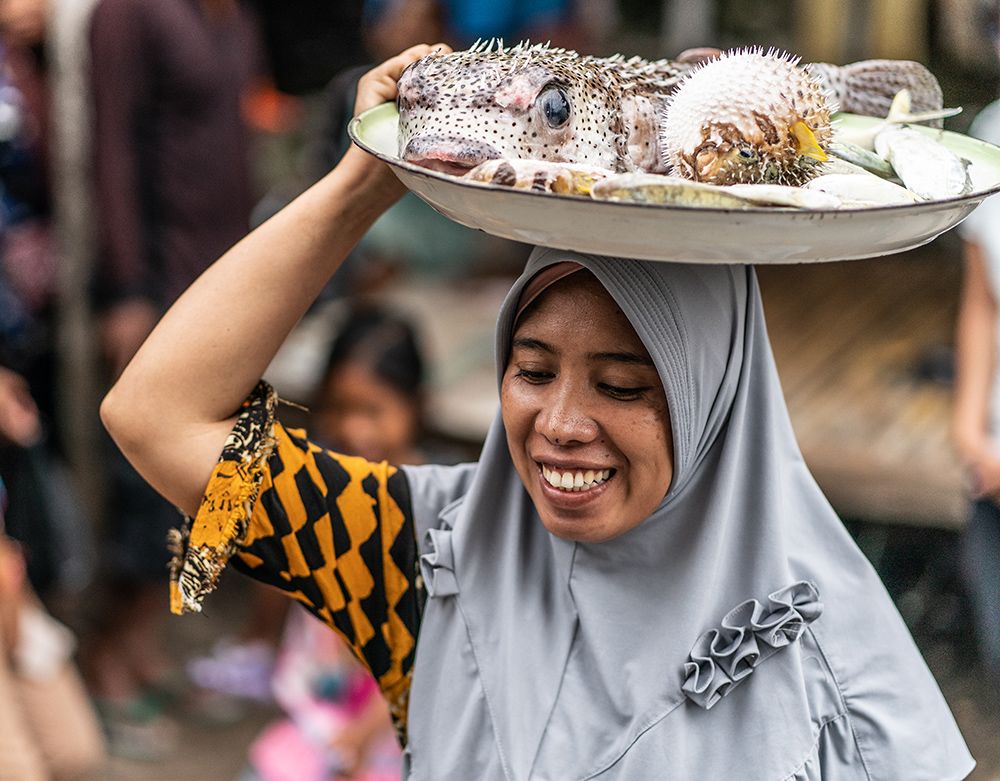
With Fish Forever’s support, Nurlini started using the OurFish digital app in June 2019. OurFish is a digital fish catch recording and reporting tool that enables fishing communities to monitor the amount, type, and local amount of fish caught. Nurlini is the first woman in her community to use it and believes it has made a significant impact on her business and personal finances. “OurFish allows me to understand four elements of my transaction at once: amount purchased, the day’s sales, the debt I still owe, and my balance and trends over time. So, I feel lighter, less worried, and happy, because the app eases my workload.”
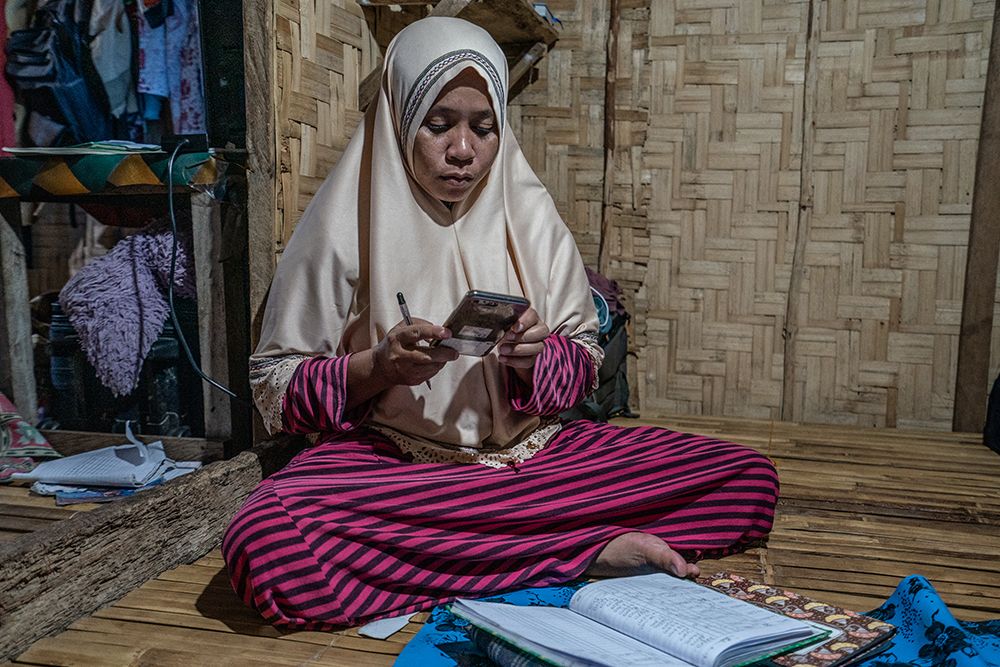
“Every fisherman’s wife used to be like me. They did not know anything (about their husband’s catch and their household income). I became interested in the OurFish app because I could find out my husband’s income. Now I know how much money he makes every week and month, and I can manage his finances.”
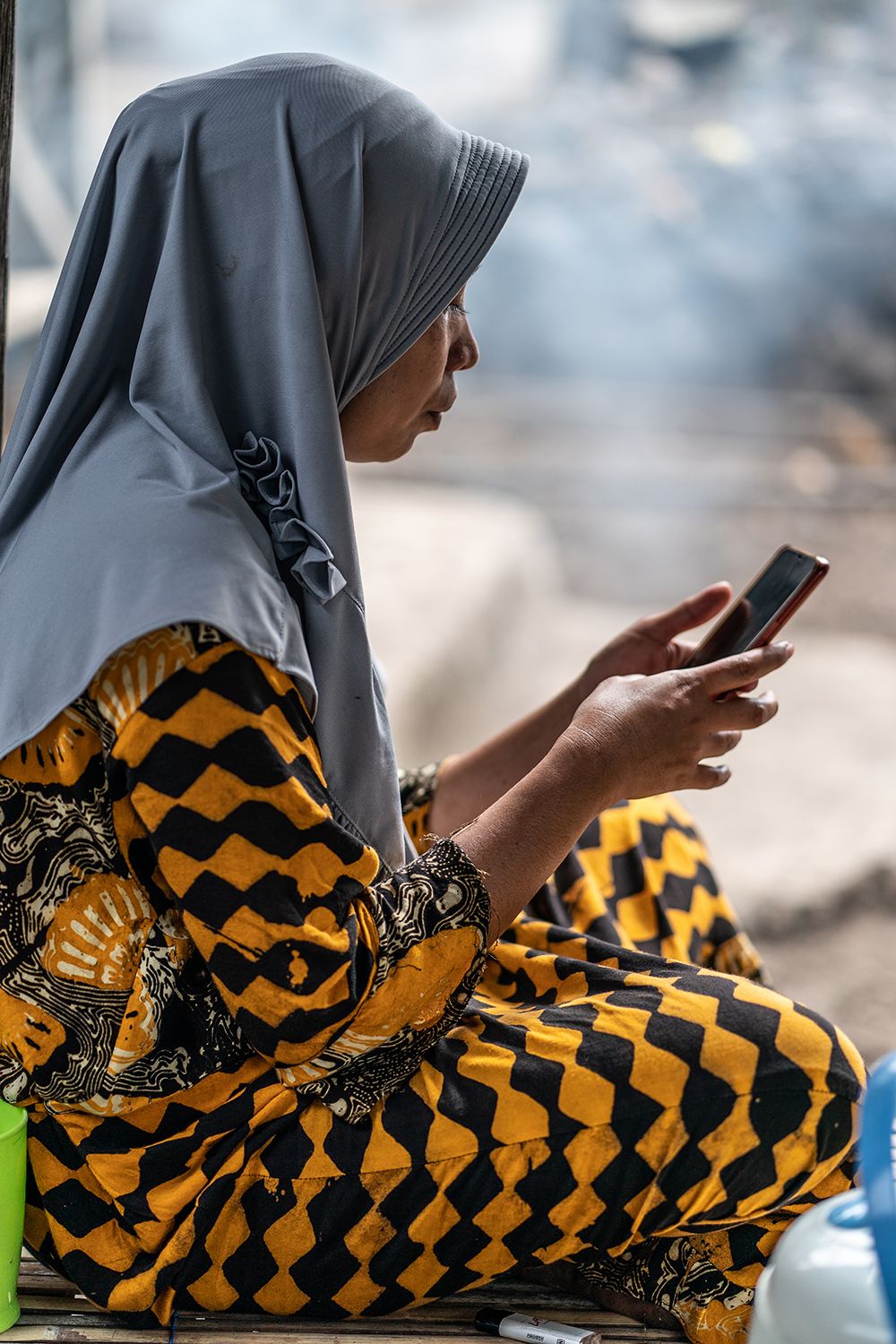
“[By using the OurFish app], I now understand my family’s income and can contribute, as a woman, to moving the economy forward.” Although their daily lives are directly dependent on fish catch, women’s contributions globally and in Indonesia usually are not represented in statistics, and they are often left out of managing or making decisions around their fisheries.
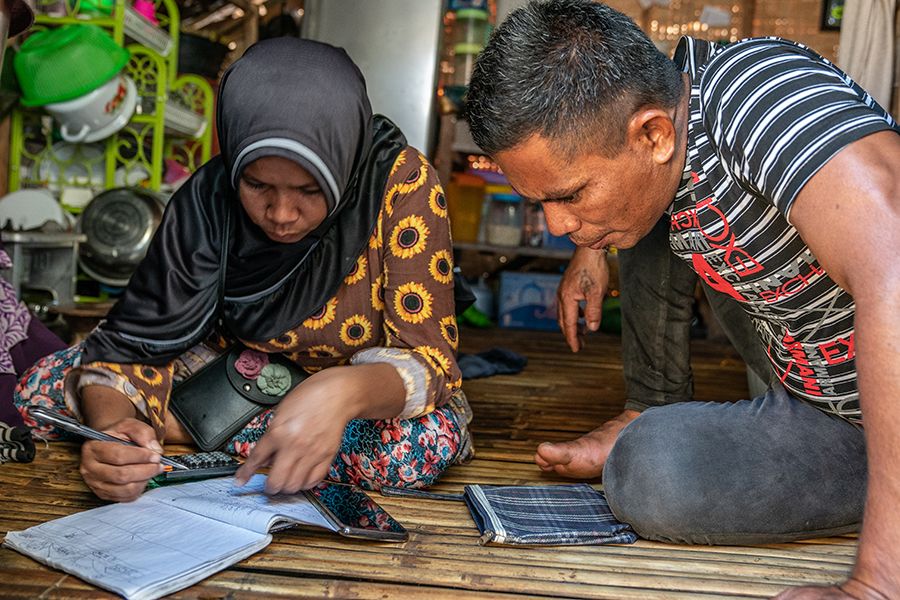
Through Fish Forever, Rare’s global coastal fisheries program, Fish Forever is working with donors, like Bloomberg Philanthropies’ Vibrant Oceans Initiative and Dutch Postcode Lottery Foundation, partners like the Royal Tropical Institute (KIT), and women fish buyers like Nurlini and Rosmiati to account for and enhance women’s contributions to help small-scale fishing communities around the world become more empowered, financially resilient and ecologically sustainable. Having access to tools such as OurFish accounts for these contributions.
Such photos provide invaluable insights into the daily lives of women and offer a visual recognition of the critical need to enable them to become more active participants in decision-making processes related to their natural resources, fish enterprises, and household finances.
Photos by George Stoyle
